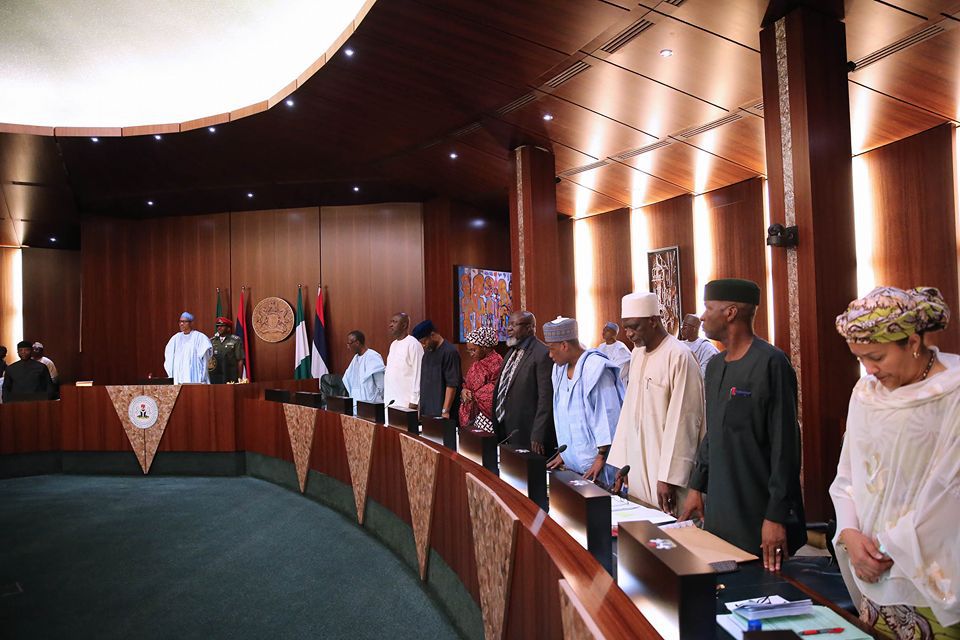
…the cabinet change is not designed to deal with identified lapses in the performance of existing ministers, nor to reward ministers who have performed exceptionally — difficult to name any, from my admittedly poor vantage. Rather, halfway into the administration’s term it would just be bringing in new faces — feeding the game of musical chairs that has gone on the inner reaches of government since October, 1960.
When, late 2016, the rumour made the rounds that the Buhari administration was looking to a refresh of its cabinet this year, the buzz around the prospect of new blood being infused into the federal government was palpable. As in the run-up to the last general elections, expectations were heightened of some movement in the direction of fixing the economy. For, whatever the incumbent administration’s conceit, it is hard to escape the sense on main street that it has not been as forthcoming on the change agenda, as its campaign posturing promised.
Doubtless, a difficult global economic environment has played its part in the administration’s frustration. Basically, cheaper global crude oil prices have denied it the revenue with which to finance major reform efforts; just as global appetites for emerging market asset waned. Equally arguably, the administration may have underestimated the rot it inherited. So, two years into the administration’s first term, we find that the federal government’s budget is still substantially about spending on salaries and overheads to the detriment of spending on maintaining existing infrastructure and/or building new ones.
Despite alluding to the high cost of governance on assuming office, not much has been done about streamlining ministries, departments and agencies of state. The net effect of this is that the duplication of functions, and overlaps of processes that this profusion of government institutions represents shows up in higher costs across the economy. The failure of the Buhari administration to lift the huge burden of the Nigerian state on the economy is the most obvious explanation for the country’s continued sub-par performance on the World Economic Forum’s (WEF) ease of doing business ranking. The Forum’s latest Global Competitiveness Index (GCI) for 2016-2017, shows the country in at 127th (of 138 countries surveyed), whereas it ranked 124th when last the index was published.
Since May 2015, government has additionally failed to improve domestic terms of trade in ways that support private sector activity. Instead, from its management of the foreign exchange markets, through the slew of sanctions it has meted out on domestic businesses, it may be supporting a sense of the “state” in the old Marxian acceptation — one interested in controlling the commanding heights of the economy. No surprise, therefore, that entrepreneurship continues to thrive only in sectors either cosseted by the state — cement, for example. Or in those ignored by the state — Nollywood, and the local music industry. Although, as with most initiatives by the government, the outlines of the proposed cabinet change were not clear as at when the government’s apologists began bruiting the idea abroad, the notion of it alone held out the possibility of a reset in the government’s direction and trajectory, just by the simple expedient of bringing in new perspectives on the myriad problems confronting the economy.
Damning, though the charge would read, the administration will have one important extenuating argument. Its extremely low targets were set for it by the tunnel-visioned Jonathan administration that it took office from.
That was before the government indicated that the proposed changes to the cabinet were neither a task nor a process response; but an anniversary observance.
In other words, the cabinet change is not designed to deal with identified lapses in the performance of existing ministers, nor to reward ministers who have performed exceptionally — difficult to name any, from my admittedly poor vantage. Rather, halfway into the administration’s term it would just be bringing in new faces — feeding the game of musical chairs that has gone on the inner reaches of government since October, 1960.
It is easy to put down this reading of this government’s policy response as typical Nigerian cynicism. However, the absence of a sense of urgency, i.e. one that would have been unequivocally signalled by an immediate replacement of underperforming ministers as soon as the new Year was birthed, suggests that the Buhari government may be satisfied with both the direction and pace of its policy options. Despite clear economic evidence of their failure.
Set your sights low enough, and any movement in the general direction is admirable progress. Ultimately, this may be the most enduring charge that would be laid at the doorstep of the Buhari administration. Damning, though the charge would read, the administration will have one important extenuating argument. Its extremely low targets were set for it by the tunnel-visioned Jonathan administration that it took office from.
Ifeanyi Uddin, journalist manqué and retired civil servant, can be reached @IfeanyiUddin.
END

Be the first to comment